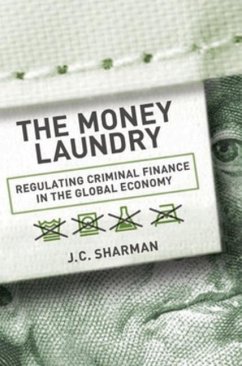Despite its ineffectiveness, AML policy has spread via three paths. The Financial Action Task Force, the key standard-setter and enforcer in this area, has successfully implemented a strategy of blacklisting to promote compliance. Publicly identified as noncompliant, targeted states suffered damage to their reputation. Subsequently, officials from poor countries became socialized within transnational policy networks. Finally, international banks began using the presence of AML policy as a proxy for general country risk. Developing states have responded by adopting this policy as a functionally useless but symbolically valuable way of reassuring powerful outsiders. Since the financial crisis of 2008, the G20 has used the successful methods of coercive policy diffusion pioneered in the AML realm as a model for other global governance initiatives.
SharmanJ. C.:
J. C. Sharman is Sir Patrick Sheehy Professor of International Relations at the University of Cambridge. He is the author of The Despot's Guide to Wealth Management: On the International Campaign against Grand Corruption, The Money Laundry: Regulating Criminal Finance in the Global Economy, and Havens in a Storm: The Struggle for Global Tax Regulation, all from Cornell, and coauthor most recently of International Order in Diversity: War, Trade and Rule in the Indian Ocean.
Dieser Download kann aus rechtlichen Gründen nur mit Rechnungsadresse in A, B, BG, CY, CZ, D, DK, EW, E, FIN, F, GR, HR, H, IRL, I, LT, L, LR, M, NL, PL, P, R, S, SLO, SK ausgeliefert werden.









